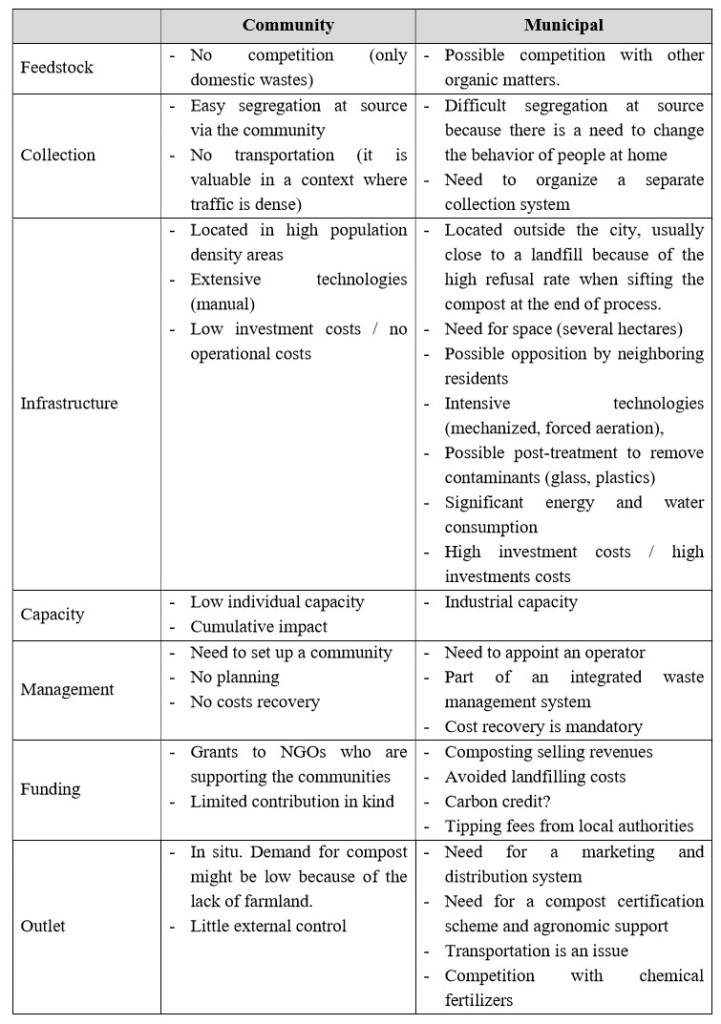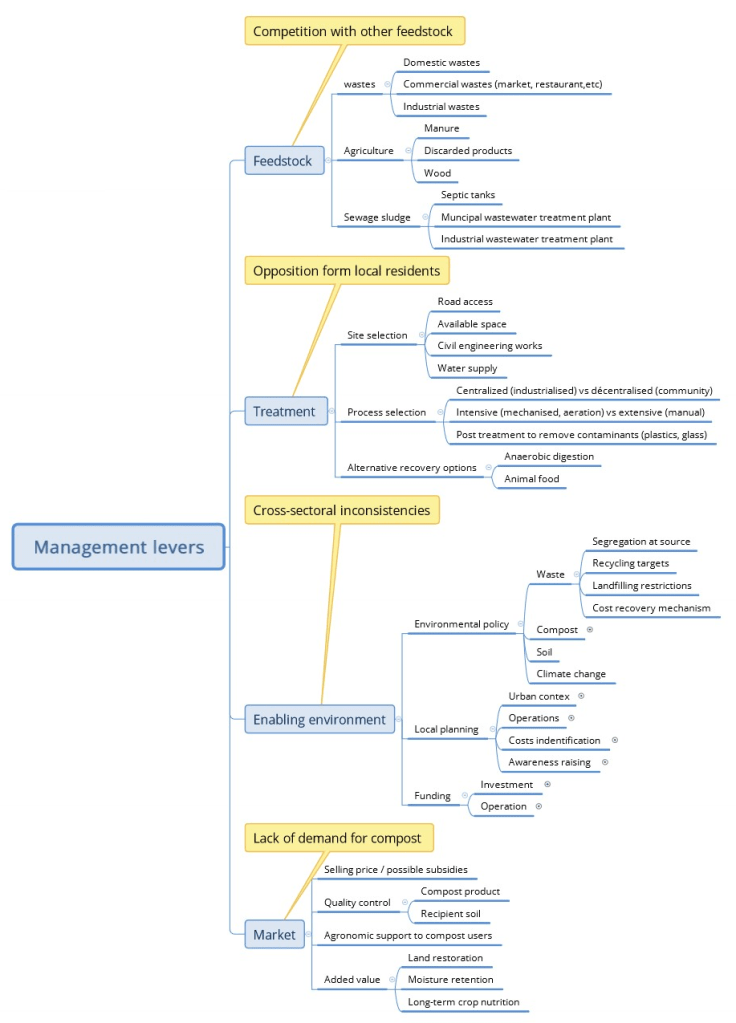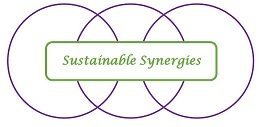Composting is a growing global concern for cities who face increasing waste generation and the associated climate impact, especially in developing countries where, even if consumption habits are changing, organic matters still represent more than 50 % of the domestic solid wastes. Here are the usually expected benefits from compositing municipal organic waste in cities.
- Public hygiene in the suburbs: the organic matters contribute to diseases spreading and cause a significant loss of amenity (odors, rodent, etc) in the public space if they are not regularly collected (especially in hot and wet conditions)
- Municipal solid waste management system: composting can cut the quantities of waste to be landfilled and the environmental impacts associated with it (gas emissions, odors, leachate). It requires less investment and operational capacity that anaerobic digestion. Indirectly, separating the organic matters from other waste will make the sorting of other recyclables much easier and more efficient.
- Agricultural production system: as soil conditioner and “slow” fertilizer, compost has a real potential to reduce the needs for chemicals and contribute to soil conservation (and thus to restore soil fertility on the long term). Typically, one kilogram of compost per square meter is distributed annually to farmlands.
- Carbon emission: Composting is a carbon neutral natural degradation process, which helps storing carbon in soil. By diverting organic matters from landfills, it decreases methane emissions in proportion. Therefore, composting systems are eligible for carbon credit, but this seems rather difficult. in 2012, only 46 projects were receiving, under the Clean Development Mechanism.
As outlined in the guidebook “composting” released in 2020 within the CCET guideline series on intermediate municipal solid waste treatment technologies (link), there is a diversity of systems that can be implemented in cities to produce compost from domestic wastes. The table below compares the 2 most common options.

However, compost production from municipal organic waste has repeatedly proven challenging to implement at larger scales and even more so in developing countries as outlined in the World Bank study released in 2016 on Sustainable Financing and Policy Models for Municipal Composting (link). It was estimated then that 8% of municipal organic waste are composted globally and only 1.5% in low-income countries. Different causes can be put forward:
- Composting systems are often conceived shortsightedly by solid waste management agencies as a purely solid waste management solution. Lack of attention to develop a market for the compost among potential compost users is a frequent cause of failure. Agronomic support must also be provided to demonstrate the benefits of compost as they face competing products that can provide fast-acting results and are cheaper due to fertilizer subsidies
- A big hurdle for many composting projects is obtaining a large volume of purely organic feedstock. Segregation at source (mainly food waste) is a necessity. Some cities have experimented with mixed municipal solid waste derived compost. Such a bad quality product quickly harmed the reputation and development of the sector. Municipal organic wastes may also compete with other feedstocks (industrial waste, manure, sewage sludge). If so, several parameters must be considered such as the contamination risks by hazardous substances (i.e. heavy metals, micropollutants), the pelletable or liquid state of the organic matters (i.e. need for dewatering); the regularity of supply (i.e. seasonal variation), the transportation distance, etc
- Projects must be able to support operational costs on the long term. They often rely on a multiple-revenue stream approach. Different sources of incomes can be considered: sale of compost, gate fee or tipping fee justified by the fact that composting divert waste from landfilling, which is more costly. External sources (grants, loan, etc.) are necessary to cover the upfront investment.
- National authorities must adopt an enabling policy environmental (stopping illegal dumping, providing economic incentives to divert organic waste from landfills, adopting compost certification schemes, etc.). .
- In some cases, inappropriate technologies were implemented, resulting in high operating costs and frequent mechanical breakdowns through poor maintenance.
Composting a low-cost and robust technology which can have a significant impact on the volume and the nature of wastes to be landfilled which the product is highly valuable. Its role withing an integrated waste management system in cities cannot be questioned. In this context, however, one should be aware that composting is a crosscutting issue that could be affected by many policies such solid waste management, agriculture, environmental, land-use, and planning. The mind map below tries to spot the main management levers and the risks to face for developing the systems.

